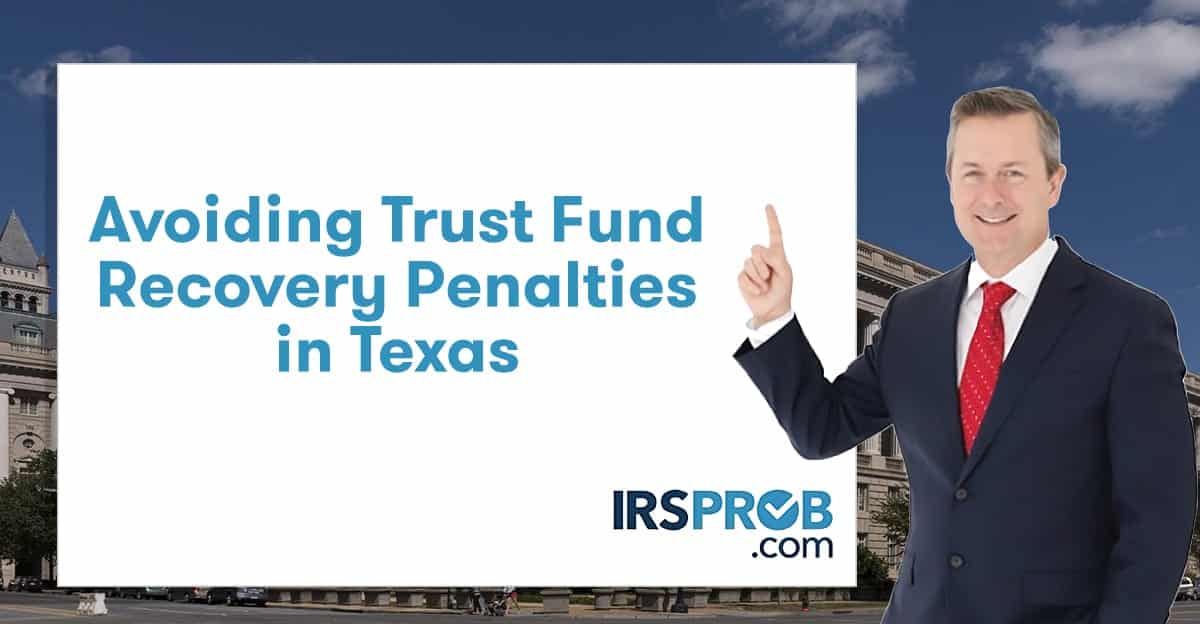Avoiding Trust Fund Recovery Penalties in Texas
The intricacies of tax code can prove labyrinthine to many individuals and businesses. One of the most daunting tax issues in Texas—and nationwide—is the Trust Fund Recovery Penalty (TFRP). As a premier Texas-based tax attorney, IRSProb is committed to helping its clients navigate complex tax situations, including the avoidance of Trust Fund Recovery Penalties.
Understanding the Trust Fund Recovery Penalty
First and foremost, understanding the TFRP is key. The IRS imposes this penalty on businesses that fail to properly manage payroll taxes. Essentially, when the business fails to remit collected taxes to the government on behalf of its employees, the TFRP may apply as a sanction. The IRS website has useful resources on TFRP, detailing the circumstances under which it’s imposed and how you can avoid it.
Top Strategies to Avoid Trust Fund Recovery Penalties
Prevention is the best way to avoid TFRP. Here are three key preventative strategies:
– Correct Tax Withholding: Ensure that all employee taxes withheld are correctly and timely submitted to the government.
– Regular Monitoring: Keep an eye on tax-related transactions and the individuals in charge of them.
– Legal Consultation: Engage a tax attorney to advise on tax compliance and to help intervene before a situation escalates.
Seeking Professional Help
Navigating the complexities of TFRP can be overwhelming without professional assistance. Engaging a tax attorney like IRSProb, experienced in this niche, can be beneficial in preventing TFRP or handling it if already imposed. Moreover, the IRS website has valuable information regarding those responsible for TFRP and how they can resolve it.
TFRP in Texas need not be a daunting prospect. With sound tax practices and legal guidance, businesses can strategically navigate the tax landscape to minimize risks and avoid unnecessary penalties.






